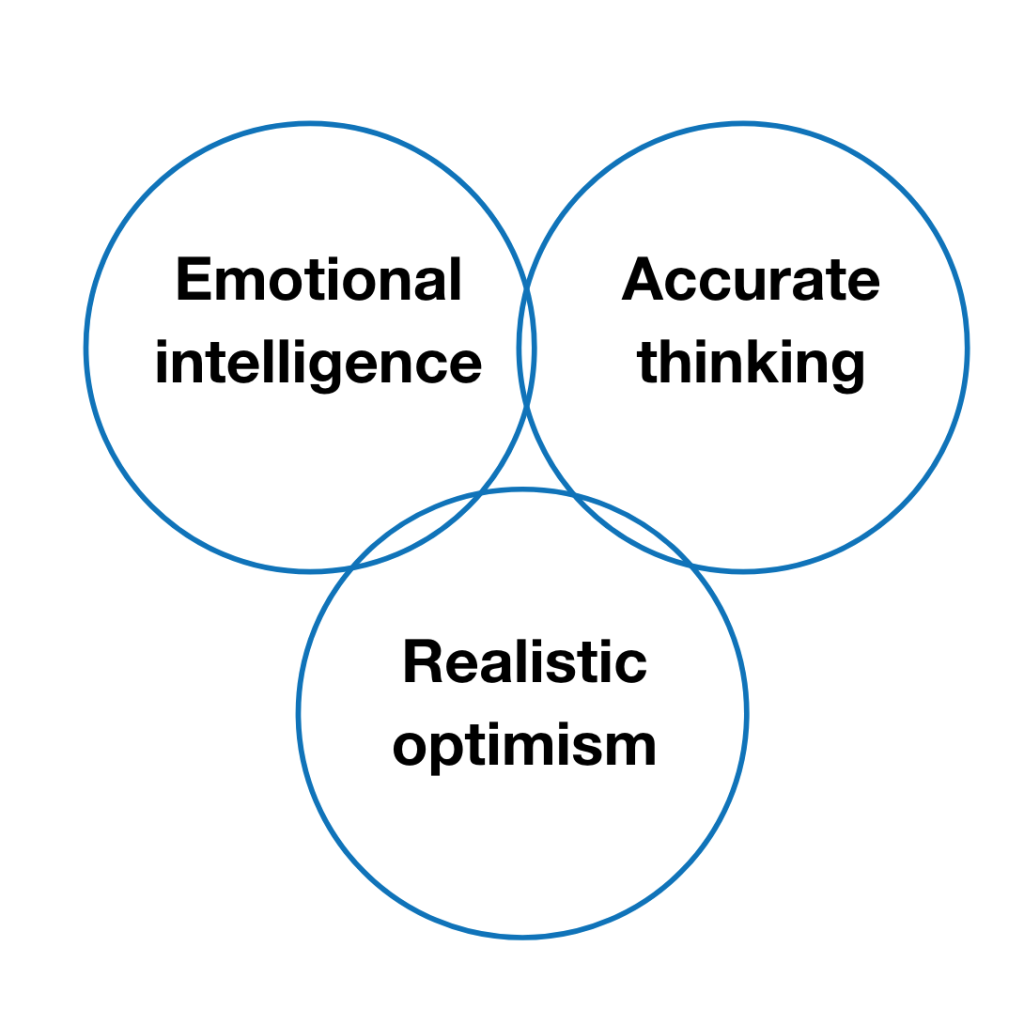What can you do to develop your personal resilience?
To develop the seven characteristics, focus on three areas of
personal development.

What do we mean by resilience?
Simply put, resilience is the ability to cope under pressure.
A person who copes well under pressure is resilient.
Research suggests that the ability to cope well under pressure
is based on a positive outlook, combined with strategies to
manage pressure.
Where does resilience come from?
The way we behave is shaped by a range of factors
including personality and past experience, as well as current
circumstances and the people around us.
All of these things therefore influence a person’s resilience.
Are some people naturally more resilient than others?
Some people may have qualities that make them more resilient
than others. Resilience, however, is best defined in terms of
behaviour and support. Behaviours can be learned and support
put in place – which means that, in practice, there is a lot we can
do to help people become more resilient.
What does resilience look like?
Behaviours associated with resilience include:
- Understanding and valuing the meaning of what you do at work
- Doing what you can to get on with the people around you
- Taking a problem-solving approach to difficulty
- Keeping a sense of perspective (and humour) when things go wrong
- Being flexible and willing to adapt to change and to learn
- Greeting new situations, new people and new demands with a positive attitude
- Drawing on a range of strategies to help you cope with pressure
- Recognising your thoughts and emotions – and managing them
- Offering support to colleagues when they need it and asking for help when you need it
- Being willing to persevere when the going gets tough, but also…
- Recognising and respecting your own limits, including
- What you can control and what you can’t.
7 characteristics of personal resilience
People behave resiliently when they:
- are able to identify and manage their thoughts and
feelings - tolerate ambiguity – in other words, they can live with the
fact that there are uncertainties in a situation; that
ability allows them time to assess the situation before they
respond, allowing them to act thoughtfully - take a positive approach – in other words, they take a
realistic view of people and situations and then try to
make the best of things; this has been called being
realistically optimistic - think accurately about events and their causes – this is
essential for problem solving, but it also greatly affects
how a person interprets events, which affects how they
see themselves and everything around them - are sensitive to other people’s emotions – helpful in all
sorts of ways, not least in communicating with people and
in building networks of support - have confidence in their ability to solve problems –
they make a realistic assessment of their strengths
and their weaknesses; they make good use of their
strengths and they do not dwell on their weaknesses (in
other words, they take a positive approach to themselves) - are willing to run the risk of failure in order to grow – they
accept that failure is part life and fear of does not stop
them from exploring new directions.
You behave resiliently when you:
- Manage your own thoughts and feelings
- Assess a problem before you try to resolve it
- Are realistically optimistic
- Think accurately about things
- Are sensitive to other people’s emotions
- Are confident in your own ability to solve problems
- Are willing to embrace the new in order to grow.
- Personal resilience in a nutshell
- Personal resilience is about self-awareness, strategies,
- Networks of support and being positive – these are all
- Things that can be developed.
- Personal resilience is underpinned by the ability to
- Manage in-the-moment and long-term pressure.
- Managing pressure begins with recognising when
- Pressure is becoming excessive.
- Too much in-the-moment pressure leads people to
- Misread situations and react inappropriately; repeated
- Often enough, in-the-moment pressure can become a
- Health risk.
- Simple techniques exist to relax, become self-aware and
- Regain control of thoughts and feelings.
- Exposure to excessive long-term pressure results in
- Chronic stress and can produce many negative physical,
- Psychological and behavioural effects.



